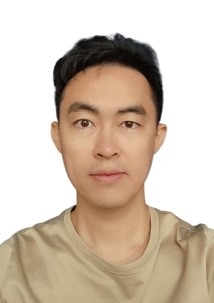报告题目:Strange metal at Lifshitz transition
报告人:张啸天 助理研究员 (中国科学院大学卡弗里理论科学研究院)
报告时间:2024年10月22日 (周二)14:00-15:00
报告地点:北洋园校区49教410室
报告摘要:
Non-Fermi liquids, particularly the universal strange metal, are ubiquitously observed in strongly correlated materials, that includes the high-Tc cuprates, ruthenate oxides and twisted bilayer graphenes. The unprecedent tunablity of these two-dimensional (2D) systems provides access towards the Lifshitz transition where the Fermi surface exhibits van Hove singularity (VHS) saddle points. Despite extensive investigation on the ordering instabilities, the critical phenomenon induced by the VHS are rarely explored. Here, we investigate the NFL behaviors at Lifshitz transition in the 2D magnetic heterostructure interface, where the Fermi surface undergoes a convex-to-concave topological transition. We uncover an exotic NFL phase at the VHS with the quasiparticle lifetime scaling as ∼ω1/2. This exotic NFL feature dominates over the rest of the Fermi surface points in the low-energy limit. At finite energies, it crossovers to the marginal Fermi liquid. Importantly, we demonstrate the strange metal behaviors, that includes the linear-in-T resistivity and the Tln(1/T ) specific heat, can emerge solely from the inclusion of spatially uniform interactions owing to the Galilean invariance breaking at VHS. Furthermore, we propose that the non-magnetic ARPES can directly probe the exotic NFL features at heterostructure interface. Our findings explore the interplay of VHS in lower dimension, disorder and strong interactions, which paves a novel path to study the high-Tc superconductivity, 2D magnetism and spintronics.
报告人简介:
Xiao-Tian Zhang earned his bachelor's degree from the College for Gifted Youngs at the University of Science and Technology of China in 2013. He then pursued his PhD at the International Center for Quantum Materials, Peking University, under the supervision of Prof. Ryuichi Shindou, graduating in 2019. From 2019 to 2022, he worked as a postdoc in Prof. Gang Chen's group at the University of Hong Kong. In 2022, he joined the Kavli Institute for Theoretical Sciences at UCAS, as a Director's Postdoctoral Fellow and Special Research Assistant.